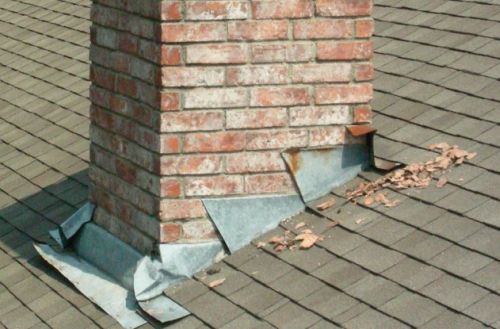The first base flashing sits around the bottom of the chimney.
Putting roofing cement around chimney.
Panels above the chimney should be removed.
It sits over the base flashing to ensure water doesn t slip behind the base.
Nail the shingles and saddle into the roof.
One laying involves tightly playing sheet metal around the chimney edges.
How to use roof cement.
In the second layer more sheet metal is inserted into the chimney mortar joints and folded over to cover the first layer.
Place shingles over the flat part of the saddle.
Why not to use tar to patch your roof or chimney lead it s every homeowner s worst nightmare.
How to cement over a brick chimney.
Secure the chimney saddle.
A silent movie about flashing a metal roof into a brick chimney from unioncorrugating.
Roof cement is a multi purpose patching material and adhesive for repairing holes and leaks in roofs.
While they are durable and hold up over time nearly every person eventually.
Nail it to the roof along the top edge.
Cut two opposing 45 degree notches into z closure to allow a 90 degree bend.
Use a hammer and roofing nails to attach the saddle to the roof.
Fit the chimney saddle around the back of the chimney.
The second piece the counter flashing is embedded into the masonry of the chimney.
Roofing cement creates a waterproof seal.
Effective roof flashing around a chimney includes two layers.
Brick chimneys are a common feature used in home construction around the world.
Roof repair and roof replacement can seem like an invasive and expensive dilemma causing many homeowners to want to simply patch the leak with a bucket read more.
Insert roofing nails into the saddle and roof every 6 inches 15 2 cm.
Along the edges or closer if necessary to flatten the metal.
Fixing rust spots and joints in leaky gutters and metal trim.
Roofing professionals usually apply it with a trowel.
If you are going to install shingles on a new roof they should be on all surfaces of the roof including around the chimney hips and valleys of the roof.
Installing shingles around the chimney is particularly important as the joins between the surface of the roof and the vertical surface of the chimney creates the ideal place for leaks to occur.
Trim panels to fit around the chimney.
Bend legs up the chimney sides about 1 inch.
Seal the sides of the chimney with prebent pieces of step flashing under each course of shingles photos 4 and 5.

